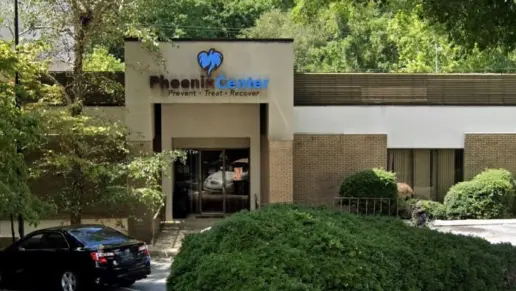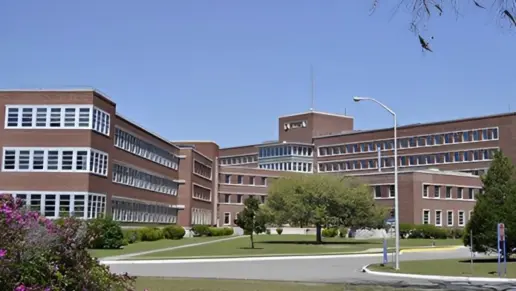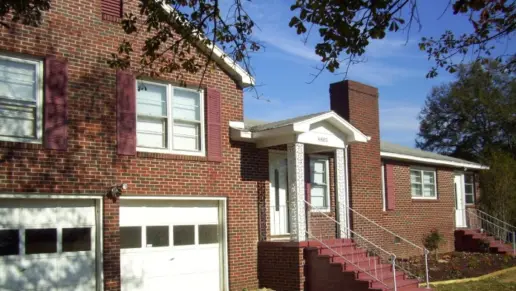U-turn has saved countless lives through an approach that penetrates the denial source and subsequently motivates recovery. The only proven recovery from chemical dependency is spiritual. I believe the negative responses to the program are from the unfortunate souls who aren ...
About U-Turn for Christ South Carolina
U-Turn For Christ is a residential addiction rehabilitation program dealing with men who are seeking restoration from drug and alcohol addiction, through our Lord Jesus Christ. U-Turn For Christ is located in Lexington, South Carolina.
At U-Turn for Christ, their supreme desire is to know Christ and be transformed into His image by the power of the Holy Spirit. They are based entirely on the Word of God, the Bible, and get all counsel from it.
During Phase 1 of their program, the men are in up to 5 bible studies per day. Also, the men spend their day involved in work and chores either on the property or at one of the locations where they volunteer in the community. The men live dormitory style in mobile homes. This type of housing promotes healthy fellowship.
Once the men have completed week 2 in the program, family is encouraged to come out and visit them on Sundays. The men have the opportunity to take advantage of phase 2 upon completion of the ranch phase for an additional 6 months of growing and training. This is an optional part of the ministry that is strongly recommended. All court referrals must complete at least 8 months without exception! If the court is not willing to make it mandatory then they will not accept the individual.
Latest Reviews
Rehab Score
Gallery

Location
Accepted Insurance
Other Forms of Payment
Self-pay involves paying for treatment out of your own pocket. You can use savings or credit, get a personal loan, or receive help from family and friends to fund your treatment. If you don't have insurance or your insurance plan doesn't cover a specific program, self-pay can help ensure you still get the care you need.
Addiction Treatments
Levels of Care
Treatments
The goal of treatment for alcoholism is abstinence. Those with poor social support, poor motivation, or psychiatric disorders tend to relapse within a few years of treatment. For these people, success is measured by longer periods of abstinence, reduced use of alcohol, better health, and improved social functioning. Recovery and Maintenance are usually based on 12 step programs and AA meetings.
Choosing a drug rehab in South Carolina helps you overcome drug dependency, learn how to manage cravings, and obtain the tools needed to prevent relapse. This is accomplished through individualized treatment that addresses a full spectrum of physical, social, and emotional needs.
Opioid rehabs specialize in supporting those recovering from opioid addiction. They treat those suffering from addiction to illegal opioids like heroin, as well as prescription drugs like oxycodone. These centers typically combine both physical as well as mental and emotional support to help stop addiction. Physical support often includes medical detox and subsequent medical support (including medication), and mental support includes in-depth therapy to address the underlying causes of addiction.
Substance rehabs focus on helping individuals recover from substance abuse, including alcohol and drug addiction (both illegal and prescription drugs). They often include the opportunity to engage in both individual as well as group therapy.
Programs


Clinical Services
Group therapy is any therapeutic work that happens in a group (not one-on-one). There are a number of different group therapy modalities, including support groups, experiential therapy, psycho-education, and more. Group therapy involves treatment as well as processing interaction between group members.
In individual therapy, a patient meets one-on-one with a trained psychologist or counselor. Therapy is a pivotal part of effective substance abuse treatment, as it often covers root causes of addiction, including challenges faced by the patient in their social, family, and work/school life.
The goal of all family therapy sessions is to support their loved one's recovery effectively by learning new and healthy communication skills as well as ways of managing stress and resolving conflicts. This helps improve interactions and addresses underlying issues within the family that often influence recovery.
Amenities
-
Private Setting
-
Hiking
-
Residential Setting
-
Private Rooms
Contact Information
1156 Barr Road
Lexington, SC 29072



